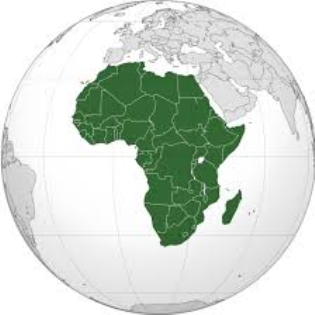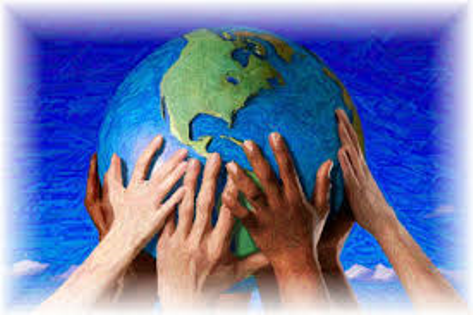SAGAMITE: EQUIPPING THE NEXT GENERATION OF NIGERIANS (I)

Sagamite is a bachelors graduate from one of the UK’s elite universities after an early life in Nigeria. He is an experienced management consultant that has worked with firms in a diverse range of industries both in public and private sector. His experience provides him with a catalogue of versatile and arcane knowledge. His current interests include logical structure of opinions/arguments, entrepreneurship and human psychology. He prides himself on his organic, objective and independent thinking, so the audience should expect a significant number of his articles to be contra-popular belief. He is one of Nigeria’s leading objective-Contrarian thinkers about life’s generally accepted conventional wisdom****
One of the things I observe and trouble me is the future of Nigeria and Africa. There are varied sets of opinions with a majority within a spectrum ranging from stack pessimism to blind patriotic hope despite the myriad of useless leaders that “lead” the ‘Dark Continent’.
Dark Continent!
Many I can bet use or hear that phrase without an understanding of what it means or its origins. Some will convenient think it is attributable to the dominant skin colour of its inhabitants, soothing themselves that it is another “racism” from the “enemy” (whites) trying to “hold us down” (as if we are not competent enough in doing that ourselves). While others will attribute it to the swarms of dark misery that straddles every corner of the continent due to the mismanagement and constant wars that lead to lack of progress and human miseries.
Although the ‘Dark Continent’ would have been a good geonym considering these two mentioned features, it is actually a toponym for the depressing view one sees below when one flies at night over Africa. That is, the pure darkness below due to the dearth of electricity usage on the planet. I have travelled quite a bit, and some of my flights have been at night to different countries. Bar Africa, the sheer mosaic of bright lights one sees from the skies is one of the best thrills of flying.
This is just one of the examples of the weaknesses that limit the progress of the continent and is likely to continue stalling it as the world continues to race rapidly through the information age. Many do not know that for countries to succeed, it is a competition. Nations are competing just like companies are competing. They compete in international markets to generate wealth and income for their citizens.
The West has moved far ahead of us in Africa in the competition. And bar some unfortunate natural distortions, to be frank, I really find it had to envisage them losing their advantage considering the knowledge base, systems and utilisation they now employed, as well as their power and political structures. Agreed that over many centuries, many powers have come and gone; but I think this can be attributed to the deep ignorance and complacency of the ruling class. This time around, with the education system of the West in an advanced stage, I do not see such an outcome occurring in their case.
The main chunk in their armour is the latter: power and political structures. As much as it has its pros, there are cons as well. Decisions are slower to get to and restricted based on compromise. This is evident in the rapid rise of China, while the rise of India is more languid relatively. China’s practice of a one-party system with some iron-force is one thing I attribute this to, in contrast with India’s World’s biggest democracy that mirrors the West.
Now, I am not advocating for abolishment of democracy, I am just highlighting one of the few things that can slow the West down and give others a chance.
For a country like Nigeria to compete, I personally think one of the most important things it needs to do is to enhance the quality of its human capital. In my view, it is really sad to say that the quality of human capital in the country is extremely low. We hear many times how Nigerians and their leaders pride themselves on the size of the country’s population, but I always ask myself what much use is this vast human capital if the quality on aggregate is low. To me, it is like a Baba Sala with a collection of 100 second-hand 15-year old Okadas thinking he has a lot of assets when his neighbour has a collection of 6 brand new Ferraris.
Once we can develop and equip our citizens to be of more use in our community and help us become more competitive, we would be better for it. We need to equip the next generation.
Some of the key initiatives that the government should consider are to:
1) Invest in high quality education.
It is no secret that the Nigerian education system is in the doldrums. What would come as a surprise to many is that, in comparison to even African or local competitors, Nigeria expenditure on education is one of the lowest at roughly 1% of the Total GDP in the last 20 years according to the Economist Intelligence Unit. This is in contrast with South Africa at roughly 5.5%, Egypt’s 5%, Ghana’s 3.8% and Kenya’s 6%.
Nigeria’s figures were based on actual annual government budget on education before the rebasing of the GDP. Only Baba God knows what the true percentage is after rebasing.
According to a UNESCO research of 2004, Nigeria also had the lowest percentage of professionally trained teachers teaching at secondary school level with only 51% of its teachers trained, compared to 78% in South Africa and 83% in Egypt of qualified teachers at this stage. I will not depress Nigerians further with the statistics that say these teachers in both countries teach far less children per class compared to the teachers (half of whom are not qualified) teach in Nigeria.
I will continue next week.
Established in March 2013, JarusHub is a Nigerian information hub with focus on career and management. It is rated Nigeria's most authoritative destination for online career resources. It parades an array of Nigerian professionals who share their career experiences with a view to bridging career information gap and mentoring a generation to success. Whether you're a student, a recent graduate or an established professional, or even an executive, you will always find something to learn on JarusHub. All enquiries to jarushub@gmail.com or 0808 540 4500. Facebook: www.facebook.com/jarushub; Twitter: @jarushub or @mcjarus.
Attend JarusHub’s 2024 Seplat Assessment Center Coaching
October 29, 2024
1 comment
Let us have your say by leaving a comment belowCancel reply
Recommended For You
-
5 Ways to Identify Fraudulent Recruitment Arrangement
January 10, 2014 -
Career Q&A with Jarus: Oil & gas career, poor CGPA
September 17, 2023
© Copyright JarusHub. All Rights Reserved.









[…] leading objective-Contrarian thinkers about life’s generally accepted conventional wisdom **** Continued from part 1 2) Encouraging successful and highly skilled Nigerians to repatriate. It would do the […]